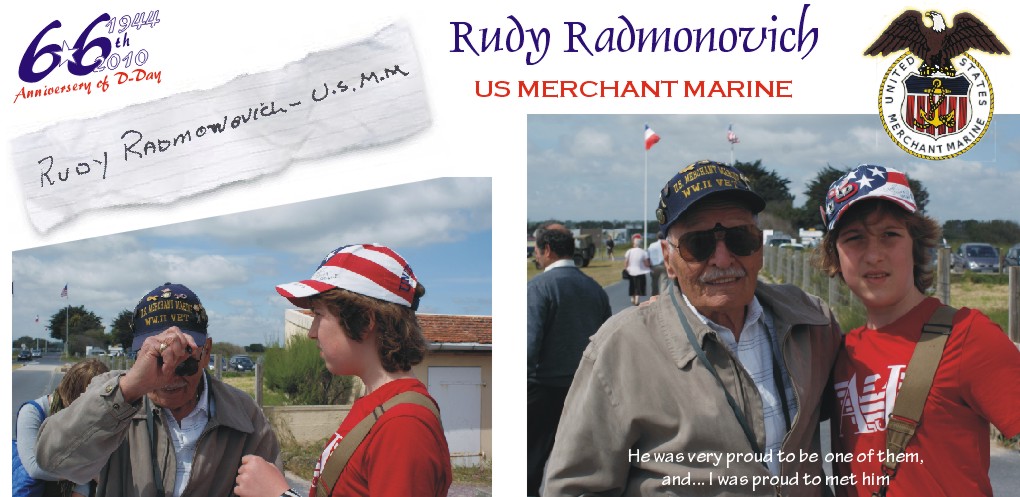An American Merchant Marine veteran who told me the follow:
”We Deliver the Goods. There were three major groups that represented the U.S. in World War II. Our fighting forces overseas, our production force at home and, while he point his cap, the Merchant Marine and the Naval Armed Guard, the link between them. Each force was dependent upon the other. The Merchant Marine was responsible for putting our armies and equipment on enemy territory and maintaining them there”.
U.S. Merchant Marine in World War II
One way to understand the Second World War is to appreciate the critical role of merchant shipping... the availability or non-availability of merchant shipping determined what the Allies could or could not do militarily.... when sinkings of Allied merchant vessels exceeded production, when slow turnarounds, convoy delays, roundabout routing, and long voyages taxed transport severely, or when the cross-Channel invasion planned for 1942 had to be postponed for many months for reasons which included insufficient shipping....
Had these ships not been produced, the war would have been in all likelihood prolonged many months, if not years. Some argue the Allies would have lost as there would not have existed the means to carry the personnel, supplies, and equipment needed by the combined Allies to defeat the Axis powers. [It took 7 to 15 tons of supplies to support one soldier for one year.] The U.S. wartime merchant fleet. . . constituted one of the most significant contributions made by any nation to the eventual winning of the Second World War....
American Merchant Marine Ships at Normandy in June 1944
Operation Overlord, the invasion of Normandy on June 6, 1944 (D-Day) included "Operation Neptune" the water transportation of men and equipment to Normandy. The initial assault ships could carry 160000 troops and 16000 vehicles. The assault armada numbered 6939 ships, boats and amphibious craft -- the largest number of vessels ever assembled. The following list includes U.S. merchant ships, Army Transport Service ships, and Navy troopships.
Merchant ships delivered :
- Troops
- Ammunition, food, tanks, and winter boots for the U.S. and Allied infantry
- Bombs, airplanes, and their fuel
- Raw material needed to make all of the above
Rudy Radmonovich is also president of one of the USMMVWWII Chapters, namely:
John F. Cromer Chapter, Michigan
Rudy Radmononvich, President
32450 Lancaster Drive
Warren, MI 48093
